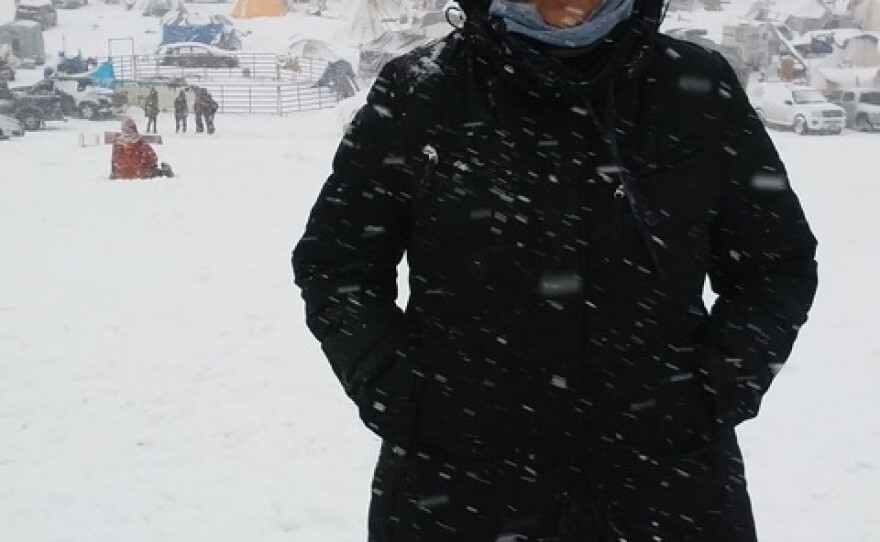To get a decent cell signal at the protest camp outside the Standing Rock Sioux Reservation, Carol Surveyor had to brave a blizzard Monday.
“It’s coming in sideways,” she said. “I just looked at my phone. It says it’s 20 degrees, but it actually feels like 8 or even lower.”
Surveyor was happy anyhow because people in the camp below have committed to making sure the pipeline is rerouted. Somewhere in the wintery camp were more than two dozen Utahns who were part of a caravan that Surveyor helped organize.
“This is absolutely beautiful,” she said, describing the scene. “I love it – seeing the unity of the people.”
Many of those Utahns plan to return home this week from North Dakota after the U.S. Army Corps of Engineers halted work on the Dakota Access Pipeline and averted a clash between authorities and protestors. Like Surveyor, fellow caravan organizer, Moroni Benally, remains hopeful -- and wary.
A co-founder of the Utah League of Native American voters, Benally . He called Sunday’s announcement an important symbol.
“It was an incredibly emotional moment,” he said, telling how the news made people weep and shout and sing. “Our voices were finally heard by the power, by our political leaders.”
Benally says the federal decision sets a precedent for indigenous people everywhere, including those who want to be involved in managing public lands like the proposed Bears Ears National Monument.
But Benally and others say their fight might not be over yet.
“There are people here who will not be moved,” he said, “until the decision is final that the Dakota Access Pipeline will not move forward.”
To make sure it doesn’t, Surveyor says she’s already planning another caravan to Standing Rock.






